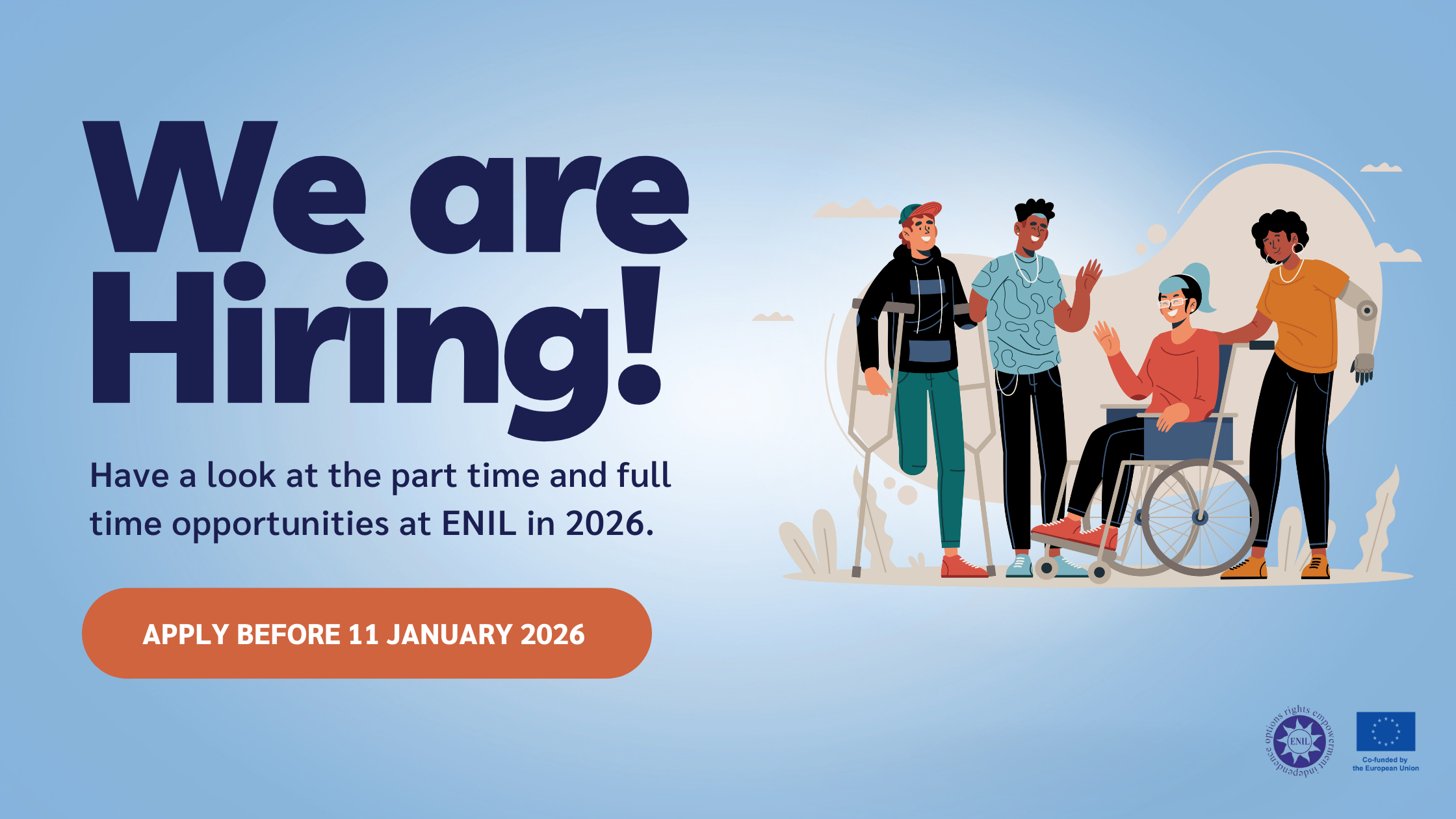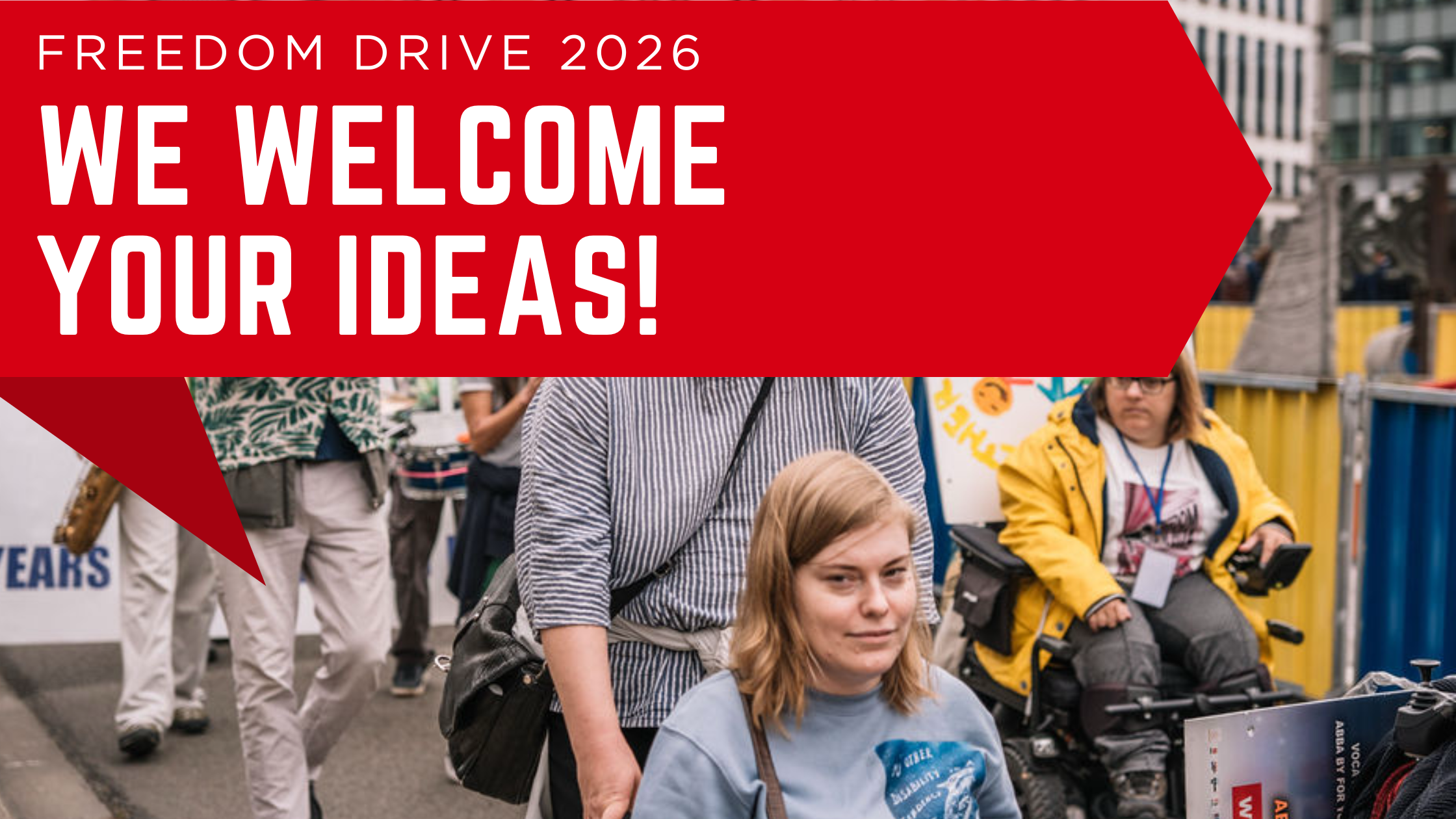From 19-21 February, together with Marianne Knudsen, a disability right activist from Norway, I represented ENIL at this year’s Zero Project Conference in Vienna. We were invited to be a part of the Youth Forum, as youth advocates, and to give our contribution to this year’s topic, which was education.
Marianne had the honour to give a speech at the Opening ceremony, which was very inspiring for everyone present. She started her speech with: “Education is the most important key we have to achieve equality, and everyone in this room can take part in this global fight for freedom”, which reminded me of something else Marianne told me: “And to be who I am, that is also freedom”. This struck me as an important notion – that education should support people in just being themselves. It always surprised me how the education system, that is some people within it, did not have any understanding for the needs of students with disabilities.
We often don’t have freedom when it comes to different aspects of social functioning, including education of young people with disabilities; despite this being key to creating the conditions for independent living of each individual. During the Zero Project Conference, I chaired the Youth Forum Couch Session, where we spoke about youth perspectives on inclusive education. While I was preparing questions for this session, I was guided by my experience as a person with disabilities, disability right activist and youth activist. The questions to delegates were as simple as they can be: to tell us something about inclusive education in their country; and, as I assumed that the situation was not perfect, my second question was: if they were Ministers of Education, what they would do to improve inclusive education.
As youth activism is part of me, I wanted to share my experience as a person with severe visual impairment, to whom some of the university professors did not show meaningful understanding when it comes to different ways of learning and passing exams. The reason for that was because they did not have general knowledge about disability, different needs and inclusive education. And they are still giving lectures at the University of Montenegro, though I hope they are better when it comes to treatment of students with disabilities. What was really inspiring is that I heard from my young Couch Session colleagues the same sentence that I have repeated for years: ask young people with disabilities how to make inclusive education better (not just different, but better). This was not a rehearsed answer, but a reality check from people coming from five different education systems. I hope that Wolfgang Sobotka (President of the Austrian National Council), who was present earlier that day, could hear this.
During all three days we could hear and learn about amazing and great things that researchers, practitioners and organizations all over the world are doing to make the lives and inclusion of people with disabilities better. Some of them were really heartwarming, such as the story of a father who wanted to improve the life of his daughter with disability by creating a special program called “Livox”.
“Nothing about us without us” is ENIL’s main slogan and was the title of our presentation on the third day of this conference. We were talking about the Freedom Drive and asked everyone to join us next year. What remained in my memory is that young people were using that slogan or part of it as they couldn’t agree more with this vision for young people with disabilities. That was not just heartwarming, but empowering too.
Marijeta Mojašević, member of the ENIL Youth Board


